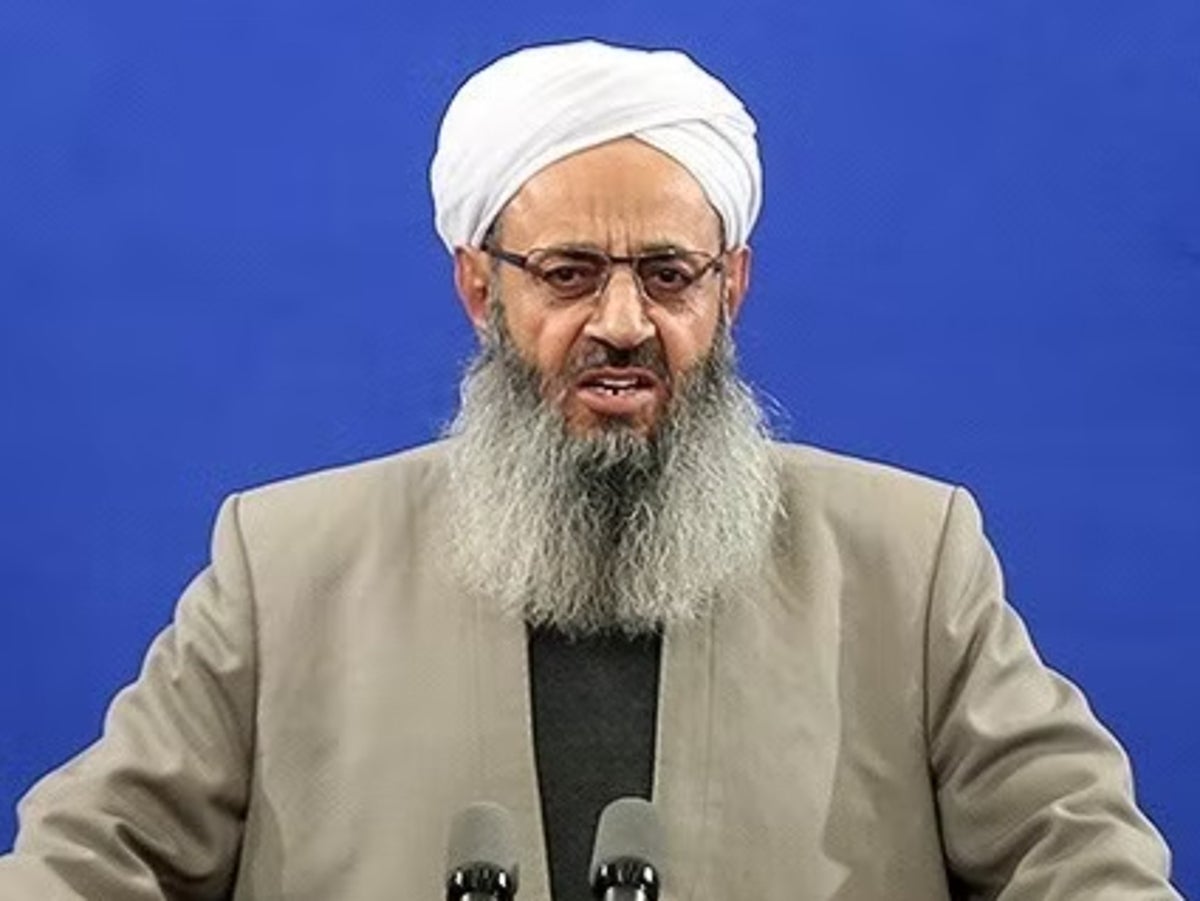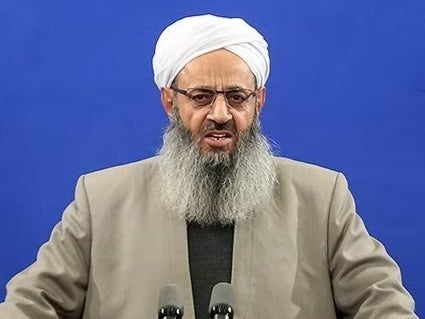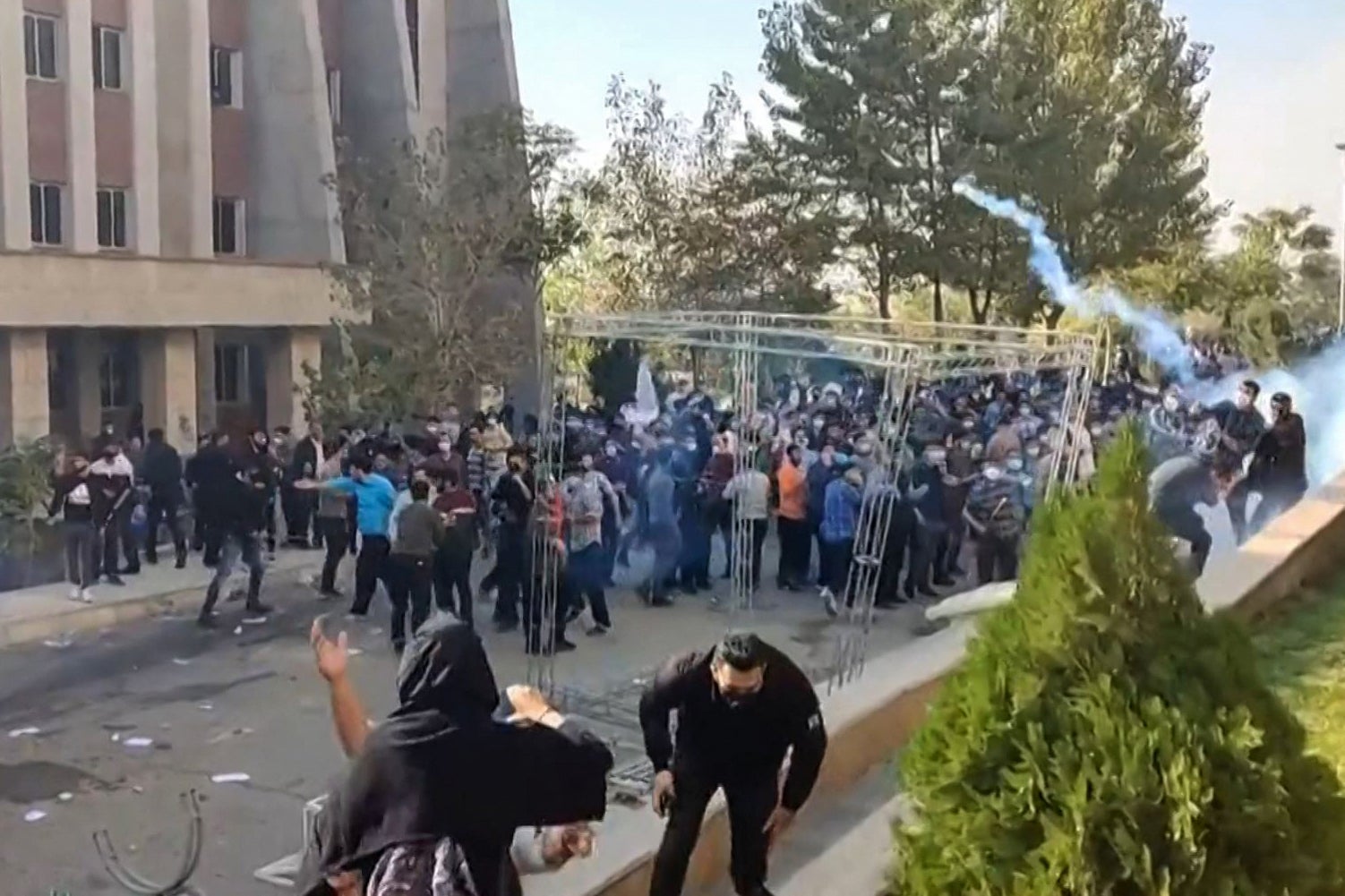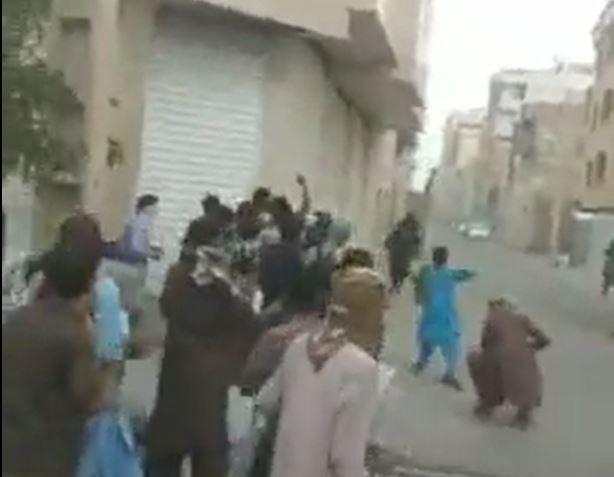
A 75-year-old Iranian cleric has emerged as an unlikely champion of a protest movement led by young men and women seeking to throw off the shackles of the country’s Islamic theocracy.
Abdolhamid Ismail-Zai, often referred to by the honorific Molavi by his supporters, is Iran’s top Sunni Muslim cleric as well as a spiritual and political leader for the country’s ethnic Baluch population. In the face of unrelenting regime violence targeting protesters in the country’s most Baluch southeast, he has grown increasingly fiery in his public statements against the regime.
On Friday, a week after regime gunmen shot dead at least 18 unarmed protesters in several cities across the Baluch heartland, Mr Abdolhamid disclosed that regime insiders had offered to buy the silence of the families of the dead. They refused, he said. They wanted justice instead.
“We do not want money,” he said in his Friday prayer sermon. “Who were the people who made this happen, and for what reason? The people who were responsible for this must be brought to justice. This was the demand of the martyrs’ families.”
Mr Abdolhamid has long been a thorn in the side of regime hardliners. But speaking at his lectern at the Makki mosque in the provincial capital of Zahedan, the cleric on Friday delivered what was possibly his most pointed speech yet.

He decried the lack of freedoms under the Islamic regime. He blasted members of parliament for their harsh stance toward protests sparked by the death of 22-year-old Mahsa Amini. He called for changes to domestic and foreign policy, and the release of thousands of political prisoners.
“We do not have freedom in the Islamic Republic,” he said. “Where is the freedom? Where is the freedom of press? Where is the freedom of expression? Everything is censored. Everything is restricted.”
He said: ”A large part of the Iranian people is protesting. A majority of the people of Iran have objections, are unsatisfied. I urge regime leaders to listen to them.”
After his sermon, worshippers poured into the streets of Zahedan chanting against supreme leader Ali Khamenei and the Islamic Revolutionary Guards Corps, the regime’s praetorian guard. “Death to Khamenei” they cried. “Death to the Corps!”
Protests erupted after Friday prayers in other Baluch cities as well, including the crucial port city of Chabahar. Protesters in Iranshahr could be seen throwing rocks and setting fires ablaze to halt the advance of security forces firing weaponry. Small cities such as Rask, Khash and Saravan – scenes of recent massacres by regime gunmen – erupted in protests.

On Friday, Amnesty International issued a statement accusing the regime of targeting the country’s southeast with exceptional brutality. “Protesters from the oppressed Baluchi minority have borne the brunt of the security forces’ particularly vicious crackdown on demonstrations,” said the statement.
Baluch is a distinct ethnic group straddling the deserts between Pakistan, Iran and Afghanistan. Iran’s Baluch have faced decades of discrimination because of their ethnic and religious statuses in a country dominated by Persians and Azeris of the Shia branch of Islam.
In recent days, Mr Abdolhamid has questioned why Iranian security forces use teargas and birdshot to confront protesters in Persian cities but have used live fire against ethnic Baluch and Kurds. More than a quarter of the 330 people killed in eight weeks of protests hail from the country’s southeast, nearly 100 of them from a 30 September massacre in the city of Zahedan, now referred to as Black Friday.
Amnesty said that it had recorded the names of at least 100 people, including 16 children, killed in protests in Baluchistan. Some killed during 4 November protests were reportedly bystanders not taking part in any political action.
Mr Abdolhamid has been outspoken and critical of regime policies for years, and has been subject to travel restrictions by the regime. He has been described as a charismatic political figure.

He has criticised Tehran’s treatment of Iran’s Sunni minority but has also been critical of armed separatist guerilla groups that have fought regime forces. During eight weeks of anti-regime protests, he has emerged as a rare and outspoken supporter of the public within the elite ranks of the regime’s clerical and political leadership.
Mr Abdolhamid recently called for a referendum on the country’s future, enraging regime hardliners, who accused him of provoking more unrest. One Baluchistan political insider said Mr Abdolhamid went further in his latest speech than he has ever gone before, but he remained circumspect, couching his critiques in religious parables.
“He doesn’t want the regime to accuse him of provoking violence,” the insider said.
Mr Khamenei appoints all Friday prayer leaders and posts at provincial capitals such as Zahedan are especially coveted. He has defrocked clerics deemed insufficiently loyal, but punishing the de facto leader of Iran’s Sunni minority at a moment of great political volatility could risk further inflaming passions.
Mr Abdolhamid avoided direct criticism of Mr Khamenei in his speech. But at one point he mocked the 227 members of parliament who reportedly signed onto a letter demanding death penalties for those protesting,
"The parliament is the nation’s house,” he said. “Representatives represent the people. You have to listen to people. You have to defend the people so that the bullets of war are not fired at them.”







